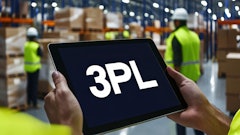
It’s no secret that the 25% tariff on imported vehicles and parts could significantly impact fleet purchase cycles, vehicle lifecycle strategies, and EV budget planning. That’s why dealers and commercial fleet operators, as they brace for cost increases and delay purchasing decisions, should partner to adjust their strategies for rising vehicle acquisition and operating costs, according to a survey released by EVAI.
“Dealers are more than just suppliers—they are key partners in helping fleets adapt and service vehicles throughout their lifecycle,” says Ian Gardner, founder and CEO of EVAI. “As commercial fleet operators face cost pressure and uncertainty, they’re looking for auto dealership partners who can guide them through smarter lifecycle decisions, EV adoption, and long-term service planning. The dealers who respond with solutions—not just sales—will be the ones who build loyalty and capture opportunity.”
Key takeaways:
- Nearly half (48%) of fleet managers say they are likely to delay planned vehicle replacements due to anticipated cost increases – 10% very likely, 30% somewhat likely.
- Almost three-quarters (71%) anticipate higher vehicle acquisition costs – 31% expect a significant increase, 40% a moderate increase.
- Over 70% of fleets are more likely to consider U.S.-made electric vehicles to manage tariff impacts and navigate supply chain concerns.
- 30% plan to extend vehicle lifecycles, and 40% will reassess purchases case-by-case, potentially reducing short-term turnover at dealerships.
- 69% expect total cost of ownership (TCO) to increase, with nearly half (49%) indicating they will decrease or postpone EV adoption budgets.
- Fleet are seeking value-added partnerships, as 42% are exploring alternative fuel vehicles, and the same percentage are likely to enhance telematics usage for cost visibility and operational control.














![Pros To Know 2026 [color]](https://img.sdcexec.com/mindful/acbm/workspaces/default/uploads/2025/08/prostoknow-2026-color.mduFvhpgMk.png?ar=16%3A9&auto=format%2Ccompress&bg=fff&fill-color=fff&fit=fill&h=135&q=70&w=240)


